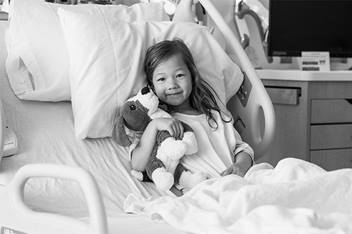Kidney Transplant Health Tips for Teens
Kidney transplant patients can lead full and healthy lives. Following these tips will help transplant patients avoid complications after surgery.
Kidney transplant patients have a higher risk of skin cancer due to their anti-rejection medications.
It is very important to wear sunscreen with SPF 30 or more when you are outdoors. Possible signs of skin cancer include sores that do not heal, lumps, blemishes, markings or changes in the way an area of the skin looks or feels. Be sure to ask your doctor to look at any areas that concern you and to check areas that may be hard to see.
Transplant patients are at higher risk for sexually transmitted diseases (STDs) because they are taking anti-rejection medicines. These medicines lower the body’s immune responses. By learning more about protection and limiting your partners you can lower your chance of infection.
Once a female has started menstruating (having her period), she needs to let her doctor know if she is planning to become, or is, sexually active. The doctor can help to make a good birth control plan.
If you are sexually active plan ahead and always use a form of birth control. If you are interested in discussing this more please let your doctor or transplant coordinator know. The Teen Clinic at Nationwide Children’s Hospital specializes in working with young people and assisting them in exploring many birth control options.
If you do get pregnant, some of the medicines you take after surgery can harm an unborn baby. They can lead to miscarriage or birth defects.
Some of the kidney transplant medicines that can cause problems with pregnancy are:
- Mycophenolate (CellCept or Myfortic)
- Enalapril
- Lisinopril
- Aspirin
- Bactrim
If doses are adjusted or medicines replaced before pregnancy, you can avoid their risks to the pregnancy.
If you are planning to get pregnant, think that you may be pregnant or find that you are pregnant, let your transplant coordinator, social worker or kidney doctor know as soon as possible! Your kidney doctor will carefully review and may adjust your renal transplant medicines to allow for a safer pregnancy. Your kidney doctor will also refer you to a doctor who specializes in pregnancy (Obstetrician).
Kidney transplant patients are already at greater risk for heart disease. Smoking cigarettes raises this risk. Other potential harmful effects of cigarettes include direct damage to the kidney transplant and a higher risk for some types of cancer.
Healthy eating habits and balanced nutrition are an important part of treatment after your transplant.
- You need to be careful what you eat to reduce the side effects of the medicines you take.
- A balanced diet that is low in fat and sugar will help you to avoid weight gain, high cholesterol and corticosteroid-induced diabetes.
- To help prevent bone disease, you need to eat dairy foods like milk, yogurt, and cheese. These help give you the calcium and Vitamin D you need.
- It is also important to be sure to handle food safely. Wash fresh fruits and vegetables that are not peeled.
Stay away from foods that have a higher risk of food poisoning, like:
- unpasteurized milk
- soft cheeses
- raw seafood
- raw eggs
- raw meat or poultry
Taking part in some sports and activities could result in a hard hit to the abdomen which could injure the kidney transplant. Some examples of these sports include:
- tackle football
- boxing
- wrestling
- martial arts
- gymnastics
- bicycle riding
- motorcycle riding
It may be best to avoid some of these activities.
Other activities pose a lower risk. Wearing protective equipment may help protect the kidneys during less risky activities. If you are not sure about whether it is safe to take part in an activity or sport, please discuss with your doctor.

